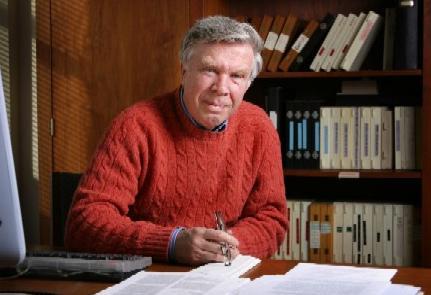
Astonishing revelations in neurology are occurring regularly in 1,200 acres of natural habitat in Millbrook, N.Y. There, at The Rockefeller University's Field Research Center, Fernando Nottebohm is unraveling the mechanism by which birds learn their songs. By studying their anatomy and behavior, he hopes to glean insights that may have clinical application to humans. He discovered that adult canaries regenerate neurons from neural stem cells and believes his discovery is not limited to this species. Indeed, he believes doctors may one day be able to replace neurons in the human brain to offset the effects of disease, injury, or aging.
Tuned into the world around him at a young age, Nottebohm became a naturalist, infatuated by birds, as a young boy in Buenos Aires, Argentina. He earned a B.A. in zoology in 1962, followed by a Ph.D. in 1966, both from the University of California, Berkeley. In 1967 he joined the faculty at The Rockefeller University, where he continues his work as director of the university's Field Research Center for Ethology and Ecology.
Nottebohm's awards include the 1983 Kenneth Caik Research Award of St. John's College, Cambridge University, England, and the Karl Spencer Lashley Award and Charles A. Dana Award (both shared with Masakazu Konishi). With Konishi and Peter Marler, Nottebohm shared the 2004 Lewis S. Rosensteil Award for Distinguished Work in the Basic Medical Sciences, and the French Fondation Ipsen Neuronal Plasticity Prize. He won the MERIT Award from the National Institutes of Mental Health and the Pattison Award for Distinguished Research in the Neurosciences. He is a member of the National Academy of Sciences, the Society for Neuroscience, and the American Philosophical Society, and a fellow of the American Academy of Arts and Sciences and the American Association for the Advancement of Science.
Information as of April 2006

